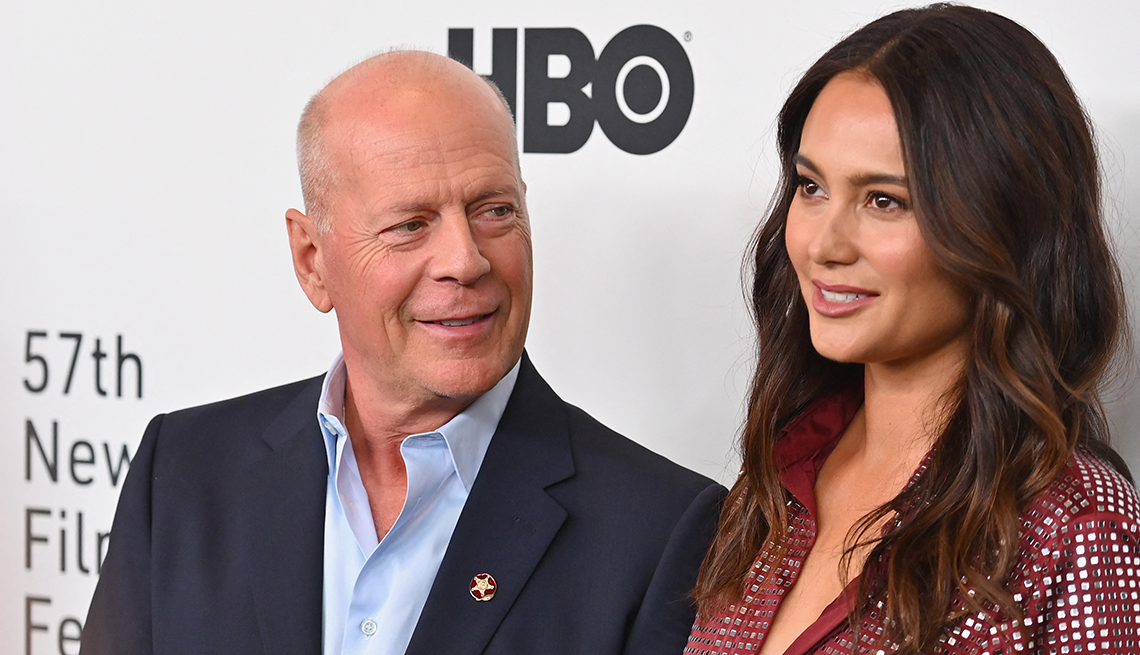Play all audios:
Emma Heming Willis is getting candid. In a new Instagram reel, the 45-year-old wife of Bruce Willis, 68, debunked a media headline that said there was ‘no more joy’ in her life with the
movie star since his dementia diagnosis. The Willis family announced the _Die Hard_ actor’s battle with frontotemporal dementia (FTD) in February 2023. “Now, I can just tell you, that is far
from the truth,” Heming Willis said in the video. “I need society — and whoever’s writing these stupid headlines — to stop scaring people. Stop scaring people to think that once they get a
diagnosis of some kind of neurocognitive disease that ‘That’s it. It’s over. Let’s pack it up. … Nothing else to see here. We’re done.’ No. It’s the complete opposite of that.” The former
model noted that there are moments of grief and sadness. “But you start a new chapter,” she says. “And that chapter is filled … with love. It’s filled with connection. It’s filled with joy.
It’s filled with happiness. That’s where we are.” Heming Willis has been dedicated to raising awareness of the disease. She recently wrote a guest essay for Maria Shriver’s newsletter, _The
Sunday Paper_, about the hard lessons she has learned. “I struggle with guilt, knowing that I have resources that others don’t. When what I share about our family’s journey gets press
attention, I know that there are many thousands of untold, unheard stories, each of them deserving of compassion and concern,” she wrote. “At the same time, I see that what I share matters
to others who may be struggling, and in a small way makes them feel seen and understood. I want people to know that when I hear from another family affected by FTD, I hear our family’s same
story of grief, loss, and immense sadness echoed in theirs.” Heming Willis noted that it is a critical time for research into frontotemporal dementia, a disease with no cure or treatment.
“The first disease-modifying treatments for FTD are in clinical trials right now, actively recruiting participants,” she wrote. “Now is the time for our community to take action to end this
disease.” FTD is the most common form of dementia in people younger than 60. Symptoms include personality changes, apathy, decision-making difficulties and speaking or language
comprehension challenges.

